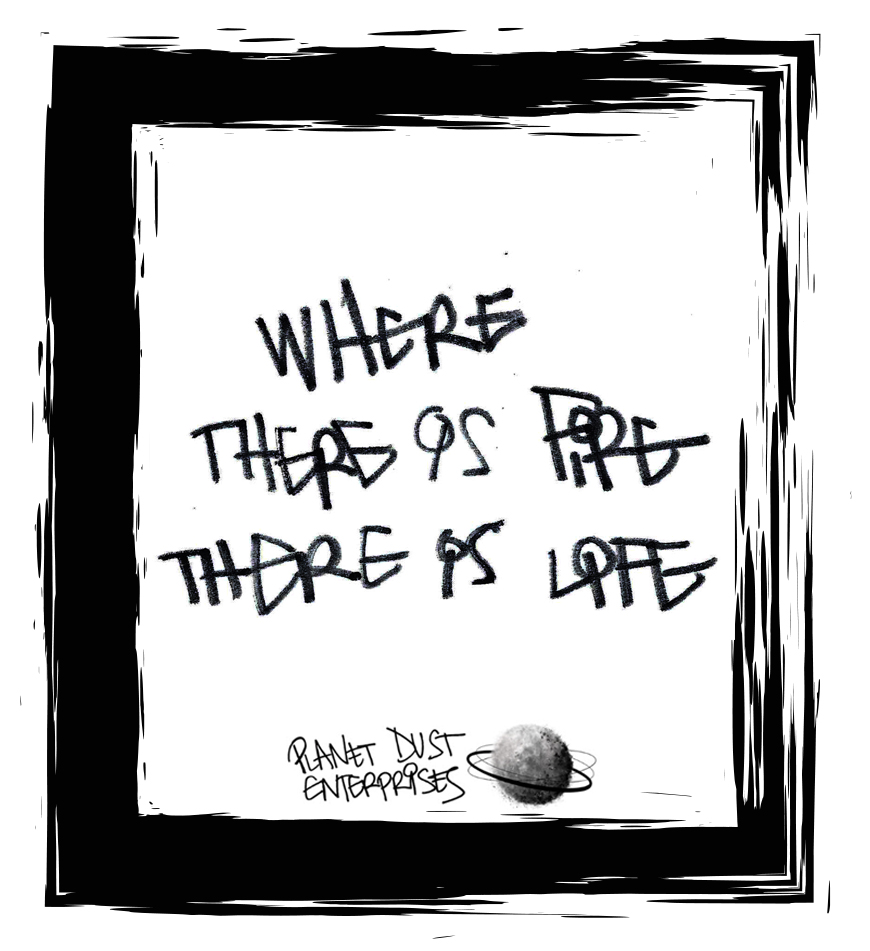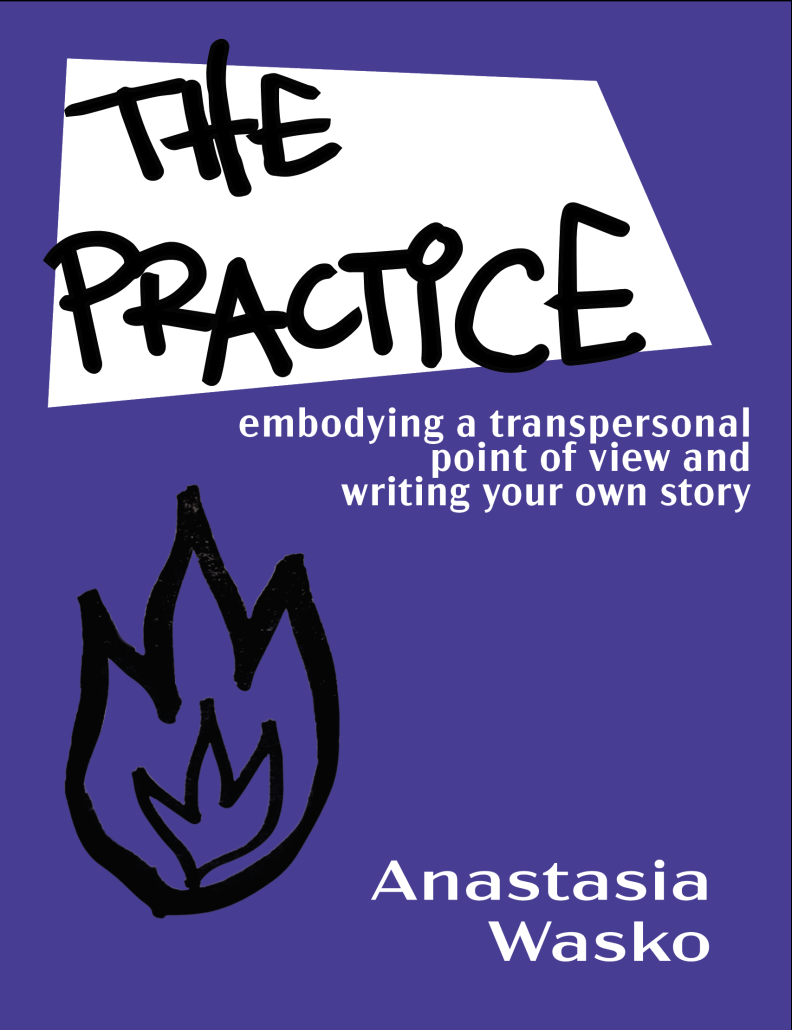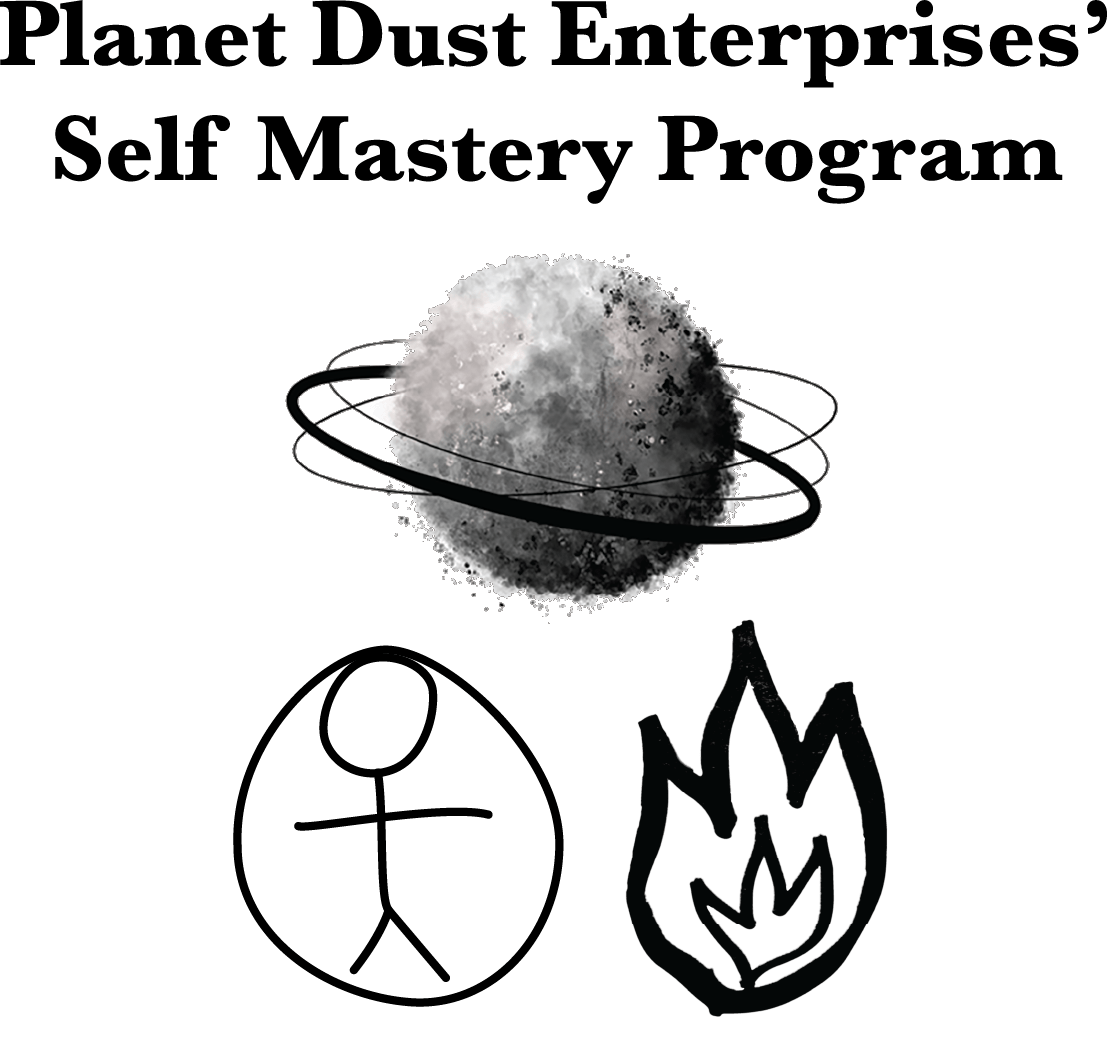Psychospiritual growth: My new town in the American South
Where the waves of psychospiritual growth flow, I float.
I was on the ground, trying to change my license plate. But I didn’t have an Allen key on my Leatherman, the one-for-all toolkit the size of a Swiss Army knife. “Bugger,” I thought. So I went across the unbusy highway to the small town hardware store on the other side. I stood at the register, thinking, “I wonder what they make of me?” as I bought the right tool. I wondered how many other heavily tattooed independent women showed up in the store. I started telling the older fella behind the counter my story about how I moved here to nowheresville Ohatchee, Alabama on a whim, eschewing my original home destination of the Hudson Valley in New York.
“NY’s dumb rules around trailers and tiny home living mean I can’t legally live in my trailer there. I was was gonna wing it and figure it out as I go.”
“Well, girl, welcome to Ohatchee. You can do anything you want here.” He smiled a toothy smile through his beard and I swooned.
But he didn’t say much of my attitude and self-righteousness, even though it preceded me. If I were in New York, I might have gagged. I might have thought, “Who are you to say, ‘Well, girl’?!” and made some snide remark like, “Don’t ‘girl’ me, girl.” Or, my ego would have fallen flat for lack of reaction. Or, I would have simply walked out of the store.
Except that, there is more to explore here.
The past interfaces with the present here. I have the right to pursue freedom and happiness, but this right is transgressive when it pulls on the strings of interconnectedness–of history, of beliefs, of rights across time and space. And the truth is that everyone has the right to pursue freedom and happiness, but the reality is our stories are different. How do we hold both sides?
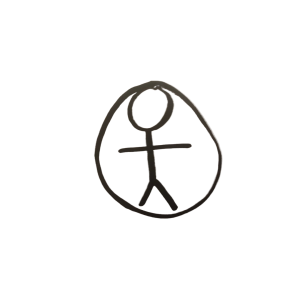
There’s lot to notice in this town. This man’s kind, country attitude is different from the clench-jawed and impersonal interactions I have in larger cities. The sharper details (to me) like the Confederate flags flying on the porches of some of the houses in town. I felt my own jaw clenching when I first saw them. The large tracts of veteran graveyards (with sites bearing people from all of the wars since the inception of the United States to recent conflicts in the Middle East) that flank country roads. My stomach always turns into knots, sensing that somehow I ride through the dirty secret of the American military complex when in a small town in The South. The Gadsden flag that adorns some Alabama license plates bearing the motto “Don’t tread on me.” It’s a bucket of ice water thrown onto my open, fiery heart. The kindness I encounter here is wrapped in a barbed wire. The sharp bits tear at my rose-colored view of the world that I can find connection with anyone. The flags, the graves, the “Don’t tread on me” are battle cries. War and acts of territorial pissings are the American ancestral inheritance. We are not free until we are free from that. But how?
As I made the short drive to a park in town, I steeped in these images, then the houses with tin roofs and shirtless men working on their dusty pickup trucks, past the abandoned town center with a row of wood buildings next to a railroad track, past a dirty white dog chained to a tree from which also hung a tire swing. I thought of throwing off living in a place like New York that has rules and regulations for every facet of life. Here, there are few. I’m still not sure if “country” is the same as “The South,” but after telling locals Imoved here, I am often met with smiles and “Welcome to The South”—and an air of mystery. Admittedly, I think I’ve stepped into some magical realism world, a secret that those in my native North can listen to through telling here—but they can’t really hear it; they don’t know how I feel or what it feels like to be here.
Freedom goes further than just where I live—I’ve got the privilege of being location-independent for work, so I literally can log on and make money online as long as I have a power source and internet signal.
I smiled at myself, thinking that I’d love to get a Gadsden flag plate. I stand for what it stands for on paper: Revolution. Freedom. Rebelliousness.
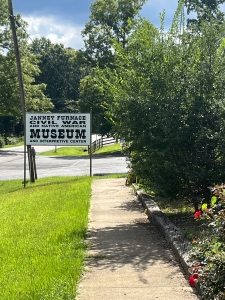
Janey Furnace Civil War and Native American Museum and Interpretive Center in Ohatchee, Alabama
Later that day, I pulled into the parking lot of the Janey Furnace Civil War and Native American Museum and Interpretative Center. There’s a short, paved trail that my dog loves to walk. She goes off leash, of course. She had bounded off into the woods, and I waited for her to return from her own flight of freedom (knowing she’d come back). A concrete Confederate soldier about three feet tall stood just ahead of me. His bayonet and Southern uniform brought the Civil War right to my face. In free association, I saw the following stream of images in my mind: Black men and women and children picking cotton, white men in penguin suit jackets in a northern city laughing in a room built buy exploitative labor practices, women and children crying watching brother fight brother. These words came up: Secession. Westward expansion. The right to live free.
I texted a friend, a New York City-area transplant to the Catskill Mountains and Hudson Valley, the place that I opted to not return to. Nick is a well read, politically opinionated, child-free musician who, at mid-life, is bound only by what he chooses to be bound. His personal life reflects his values. He makes meaning of his life as he goes. I’d say he’s the consummate city-boy-turned-country Northerner.
“But what does it even mean to be country?” I asked him. “I’m physically out in the middle of nowhere, and people keep telling me I belong here. And I’m happy. But I just don’t know how to make sense of The South. I mean, can I be happy in a place where some people still think the Civil War was an undue loss? Don’t answer that.”
I looked at the statue of the soldier and continued walking. I approached a metal sign that leaned crooked and was covered with some dust or grit or time. It was a sign I ignored on a previous walk until I realized it was at the base of a flagpole. The sign read the following: Remove your hat off when you pass this flag. A massive Confederate flag flew from the top.
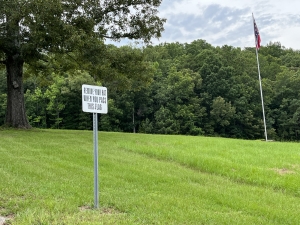
Sign and Confederate flag
I gasped. It was a moment in which the confidence and surety of my belief dissipated—that the North won the war and that was it. A deeply held belief that the North had won and there was no use lingering in the past suddenly burned hot in my belly. I didn’t know how I felt about it, except that I felt for my hand lifting my hat.
Later that afternoon, I texted Nick: “Hey—Gadsden flag on my license plate. Or nah?”
“NO. It’s been co-opted.”
My previously held perspective of the South—that it’s full of rednecks and Trumpers* and backwards ways of living, united by Southern country culture stuck in the atomic retro women-belong-in-the-kitchen–type attitude—was upended. It’s one of those beliefs that is built-in, culled from years of living in the North and following the narratives in popular media. Had I not had direct experience with the South, including witnessing and being honest with my embodied reactions while here, that embedded perspective might have never changed.
When I’m in a place that is new to me, a game of observation and comparison emerges. To make sense of my thoughts, I’ll list them out.
Yes, I lifted my hat when I passed the flag. It’s less out of respect for the Confederate idea than it is for the code. If I attend a Hindu temple, I wear pants and cover my hair. I don’t engage my feminist-AF personality. I want to be as much a part (to the extent that I don’t invalidate rites or rituals with austerity rules that are specific to the culture) as possible.
Traveling is the seed of colonialism, which now appears as colonialism 2.0—gentrification. There’s no gentrification here in Ohatchee, my adopted hometown. I hear people talk about development and more houses, but there’s no swarm of people wanting to descend upon this place because artists and workers gave it a rich culture and hands-on local economy and infrastructure. It’s just not cool enough here, and I like that. But I have been part of the problem when traveling around the world, lured by a place that has a lot of “culture” to imbibe. But often, it’s culture for white people and people who can chose to move around. I am a well read, politically opinionated, child-free person who, at mid-life, is bound only by what I choose to be bound. My personal life reflects my values.
There’s no fucking way out. Someone is going to be offended by me, and I am going to question everything I encounter here.
When Nick replied that the Gadsden flag had been co-opted, he meant the symbology had been swarmed by people who were rednecks and people who were Trump supporters and backward. The original meaning had been distorted, just like the way that the history and accounts of the American Revolution have been distorted by time. History is written by the victorious, and history is left open to reinterpretation by those who have the time and power to reinterpret it.
Revolution.
Freedom.
Rebelliousness.
I, too, hold such ideas to be at the pinnacle of the compass, the spirit to imbibe in a life worth living. If I were to lay into my authenticity, the facet of myself that lives in true alignment of what I am here for, I, too, would claim revolution, freedom, rebelliousness. But these terms are oppressive to those in a small town that is content to nestle itself in its own version of history, in its tried and true, slow and quiet, pace of living, in an unspoken cultural code that says, “You can do whatever you want here.”
The question is, can I live with the truths and the cultural codes that feel fundamentally opposed to who I am? It’s a bit of a “have my cake and eat it, too” situation. Today, I am not an oppressor and I don’t believe that I must impose my beliefs on other people. I walk away. I go somewhere else. In another lifetime, I am the oppressor. I believe I must impose my beliefs on other people. I walk all over the land and the people around me. At this exact moment in time, people are moving around the world in waves of gentrification amplified by location-independent work, ability and desire to move, and an embedded belief they have a right to do so.
And we all have the right to do whatever we want (at least, in theory).
I went home to my retro travel trailer perched on the ridge over the Coosa River. In Alabama, living in a tiny home (which my trailer is) is legal. It’s one of the few places in the United States where this is possible. I work from the trailer with clients all over the globe. I often fall asleep outside on the deck built outside my trailer. I watch fireflies till late at night. I’ve often said that this is peak independence, the ability to live where I want, work how I want, and be as joyful as I want. In a world tethered to patriarchy, capitalism and exploitation, and a quickly shrinking, mainstream media–cultural landscape, here in Alabama I feel I am in a time out of time. A place out of time. A place in its own space. My chapter in here is only beginning. But the past isn’t over yet. The reminders of the Confederacy and lingering racist action and a population comprised of 90% white people means the patterns haven’t broken.
I’m just repeating cycles, too. I am responsible for the ancestral inheritance that did harm to others in the name of my lineage’s own good.
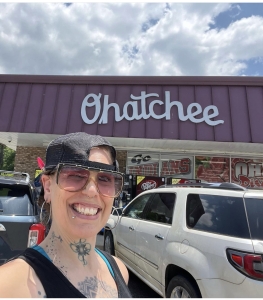
Me in at the local grocery store
And for my own good, I moved to Ohatchee for a better life. My Eastern European-immigrant family did it. They left the Old World for the United States and a better life.
What is moving forward in history if patterns are unconsciously repeated? When does the past die? Does it?
One balmy Sunday afternoon, I decided to go to the park to walk. It was earlier than my usual time in the cool evening, but it was overcast. The parking lot was empty, as usual, and it wasn’t until I rounded the building from the back that I realized the sound of air conditioning running was ambient noise. I realized the Museum was open. So I went in. I was greeted by an older, short man wearing a military cap. His beard was full over his face, but I could see broken teeth through it. When he greeted me, he spoke with a soft Alabama accent.
“Where are you from?”
“I was born in New Jersey. Upstate New York was home for a while.”
“Where’s your passport?”
I sucked a breath in. It was a joke, I knew immediately, but I didn’t know just how much attitude would come with the joke. I mentally prepared to say I’m one of the good ones—meaning that I was prepared to say I’m not an annoying Northerner—but as soon as that thought arrived, it left on the tails of another one: He’s gonna treat me however he wants to, no matter me trying to be diplomatic. He offered a tour of the small museum full of artifacts from native Choctaw and Creek tribes as well as ones from the Civil War. He gave me his practiced speeches, concentrating on the 20-mile radius of the area in which we were. I hadn’t realized the amount of violence and bloodshed that this land held, including a skirmish that happened during the Civil War on the ridge above the museum—the ridge where the Confederate flag was.
“Different tribes have lived in the area for thousands of years. In fact, when they were working on the dam on the river, they found multiple city-like dwellings and burial grounds. At one point, the river was only a creek and you could wade across it.”
I imagined the Coosa River, the one I looked upon every day from my deck, and the dam, also visible from where I live. “But it’s hecking deep!”
“Now it is,” he replied. “What you don’t realize is just how much has come through the area. People have lived here for thousands of years. It was General Jackson’s ‘Indian Removal’ policies that moved all the natives out. Heck, there was even an integrated community here. Those people built this furnace before the Union troops blew it up and burned down their houses. The excavation is ongoing. They’re still finding pieces.”
An integrated community existed here in The South in the mid 1800s. It sounds like science fiction, but it is historical fact. It is a piece of this puzzle across time that only arrives from direct experience. Had I not visited the museum, I would not have encountered this gentle being who recited story after story from the wars of 1812 and the Civil War. Tom Horton was himself a military man who spent thirty years in different roles in the army and in special forces. He was also a very educated man who showed that his knowledge led to conscious choices. He and his family maintained the museum. They are stewards of history but they can only do so by being present.
The collective unconscious doesn’t care about direction. It seems as if what lay out there, in the realm of the transpersonal, is cyclic: patterns repeat. A lifetime—my lifetime, your lifetime—is a drop in the bucket of lifetimes and timelines. Patterns across lifetimes are so large and compacted that drop by drop, action by action, is the only way to deconstruct them. It comes down to presence, awareness in the moment, and the choice for humanity—micro-choices, like taking off my cap and forgetting the cultural conditioning I have in this lifetime, add up to pattern breaking.
Many people on both sides of the Civil War died. That was years ago. But the energetic undertones live on. Those people fought for their right to do whatever they want, location dependent, in a country that was birthed from the impulse to do what it wanted—expand west; not pay taxes to a foreign government; be a beacon for freedom, especially with the liberty of religious choice.
The only way to navigate the world we live in is to ride the palimpsest experience with conscious micro-choices. We’re never in one time anymore. We’re never in one narrative. The past is never dead and the future is the past. We are only at the helm of the ship, sailing massive institutions and codified history that we don’t know much about, save for what’s in books, and therefore know even less about until we have a direct experience with the actual place of history. The land holds the stories. The people continue the narrative. The individual who can hold all versions in loving kindness can find the humanity in the community and focus solely on divisive, embedded, unconscious beliefs.
As I was leaving the museum, Tom told me he had one more thing he wanted to point out.
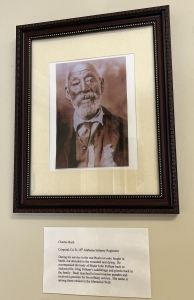
Charles Bush, Confederate soldier
“This is my favorite.” He pointed up toward a picture of a Black man in a Confederate uniform. “People don’t think there were Black folx who fought for The South. But there were. This is Charles Bush. He volunteered for the Alabama 10th Infantry Regiment. He did so out of rage. His best white friend was killed by the Union troops, so he enlisted to let his sadness out.” Then he paused.
“You don’t hear about them,” he said.
“No. And look, that joke about the passport—well it was just a joke. Was I responsible for any of this? No. Were you responsible for anything y’all Northerners did? No. Sometimes we have to make light of it with humor. I hope you weren’t offended.”
I had to suck in breath again. “No,” I finally replied. “It just caught me off guard. I admit, I had to think about it. Just like I had to think about tipping my hat to the flag outside,” I admitted. “It’s not so in your face in the north. I just take what I watch and read at face value. But being here makes a difference. What would you do if you had to live in a densely populated area and couldn’t move about dressed like a wreck?” I shook the side of my muscle shirt, where my bra strap was visible. I looked down at my worn boots and dirty jeans and bug-bite covered legs.
“Nobody cares here,” he smiled his broken-tooth grin.
“And I just wanna be happy and free.” I smiled back and realized I hadn’t brushed my teeth that day. I was too excited to get outside and explore. As soon as I left, however, I returned to this blog. It hadn’t felt complete. I want to be free. I rebel against most traditional norms. And I want to incite a revolution in mental healthcare.
This is my rebel yell: acknowledge the legacy of history as it influences our embodied experience; reflect on the disingenuous perceptions conveyed when we only believe what we read and do not have direct experience; speak freely about the way that time can bend and move in cycles of patterns.
And, stories are told by those who have the will to tell them. This post is shared with love and respect and the opinions and journey expressed are my own.
***
*Trumpers: people who are Trump supporters. The diminutive way I refer to them on the first pass is meant to show how the way I use the word has changed. I stand in direct opposition to his policies of tax breaks for the rich. I stand in direct opposition to his disregard of women and his disrespect of the sovereignty of a woman’s personhood. I stand in direct opposition to his fundamentalist evangelical religion that excludes everyone who is not white and does not play a traditional role in society. I stand in direct opposition to his cabinet that effected policies to erase queer and trans and disabled bodies. But while he has sway over the people in many states and traditionally, The South, he is a New Yorker. I grew up in his shadow and I spent many years of my youth exploring the New York City as it was affected the Trump family real estate politics and the Guliani-administration. I grew up taking the bus to the then seedy 42nd Street and Times Square, where trash bins burned on street corners and cocaine dealers sold out of a suitcase in pizza shops.
It’s not Trump that I have a problem with—it’s his narcissism in overdrive, the people in his community who fawn over him because of their need to belong somewhere. They echo him because they echo the pain of needs that were never met. He too is a spiritual being having a human experience, and that experience echoes a total disconnection from the body and the nectar of inner peace that he is not aware he has. He is a character in a body—machine that writes his story from lack of love.
***
Hi there! Thanks for reading. I’m a writer, editor, and transpersonal guide who explores psychospiritual growth.
I write my own story. In that light, my writing is service–the stories I share about my own psychospiritual growth, the process of self exploration & self transformation, and the way culture affects us are my gift to the world.
I share the knowledge and processes that anyone can implement to achieve inner peace. This is a transpersonal point of view and embodied transformation through creative writing.
And, I explore the deep stuff–what we do when we recall past life experiences; how we engage the archetypal resonance of embodied experience; when to call the “weird stuff” you’re experiencing a spiritual awakening and when to call a mental healthcare practitioner.
- If you are a mental healthcare professional who would like to work with me on your journey of psychospiritual growth or integrating transpersonal psychology with your client practice, go here
- If you are a GenXer who wants to learn about a transpersonal worldview and write your own story in a group setting online, go here
- If you are interested in my work with language and changing the mental healthcare narrative through transpersonal psychology, I invite you to read the curated pieces from my portfolio that are on this website and reach out
BTW: I love tattoos and coffee.
***
Curious about seeing the world and the mind as multidimensional? What does that mean for science?
- Check out Public Parapsychology. Learn more about what psi is and why psi belongs to everyone. Join other seekers and citizen scientists who are exploring parapsychological phenomena for the benefit of understanding the spiritual nature of the material world.
- Also consider joining The Parapsychological Association. Support an organization of professional scientists and independent researchers who are pushing the boundaries of our current understanding of the mind. Programming and publications include excellent resources for mental healthcare practitioners and healers who support individuals with transpersonal experiences.

